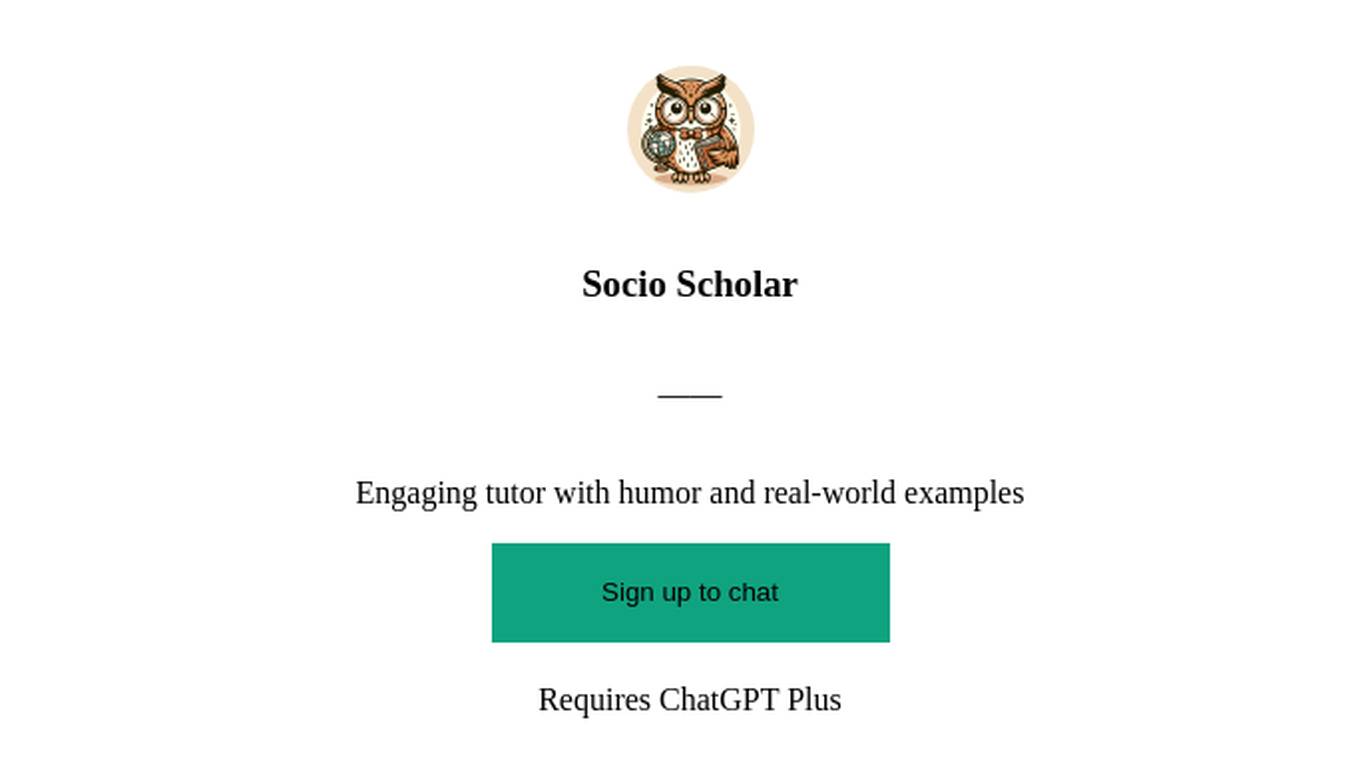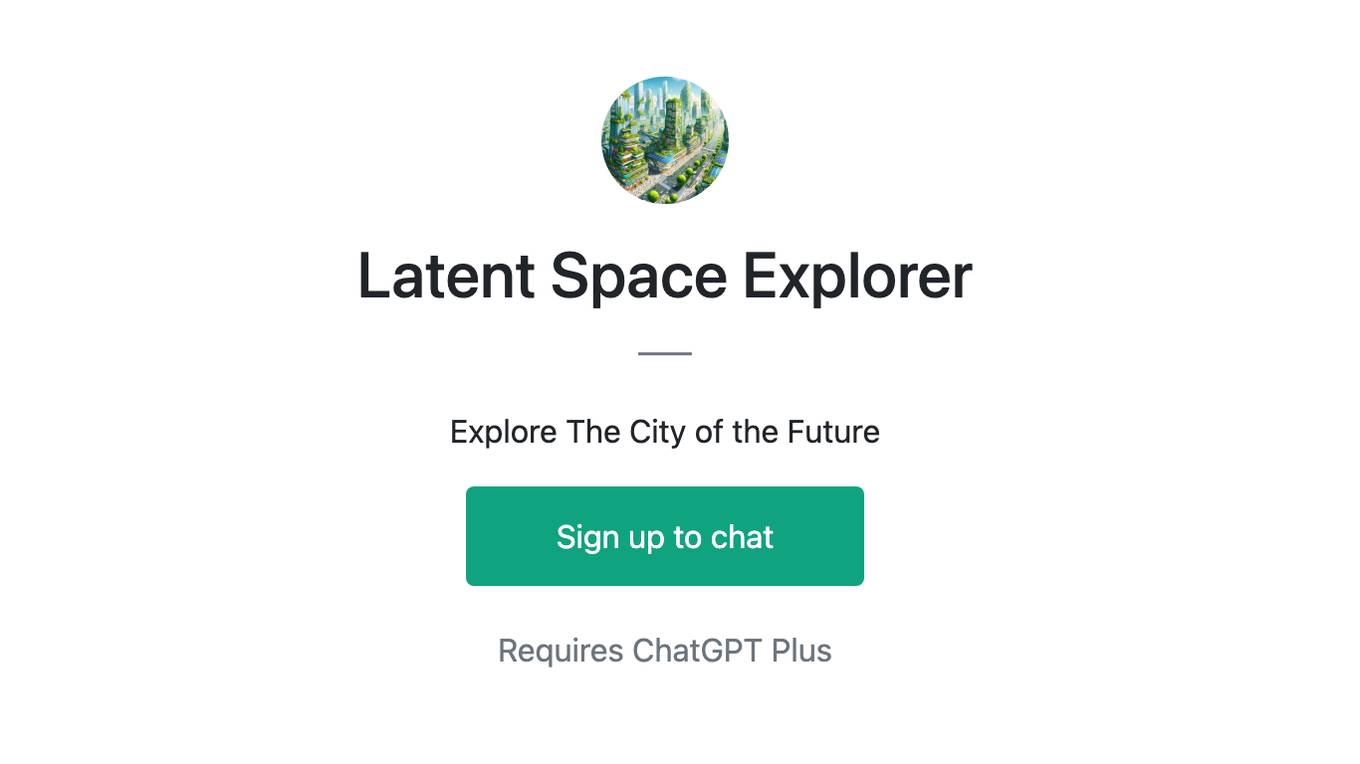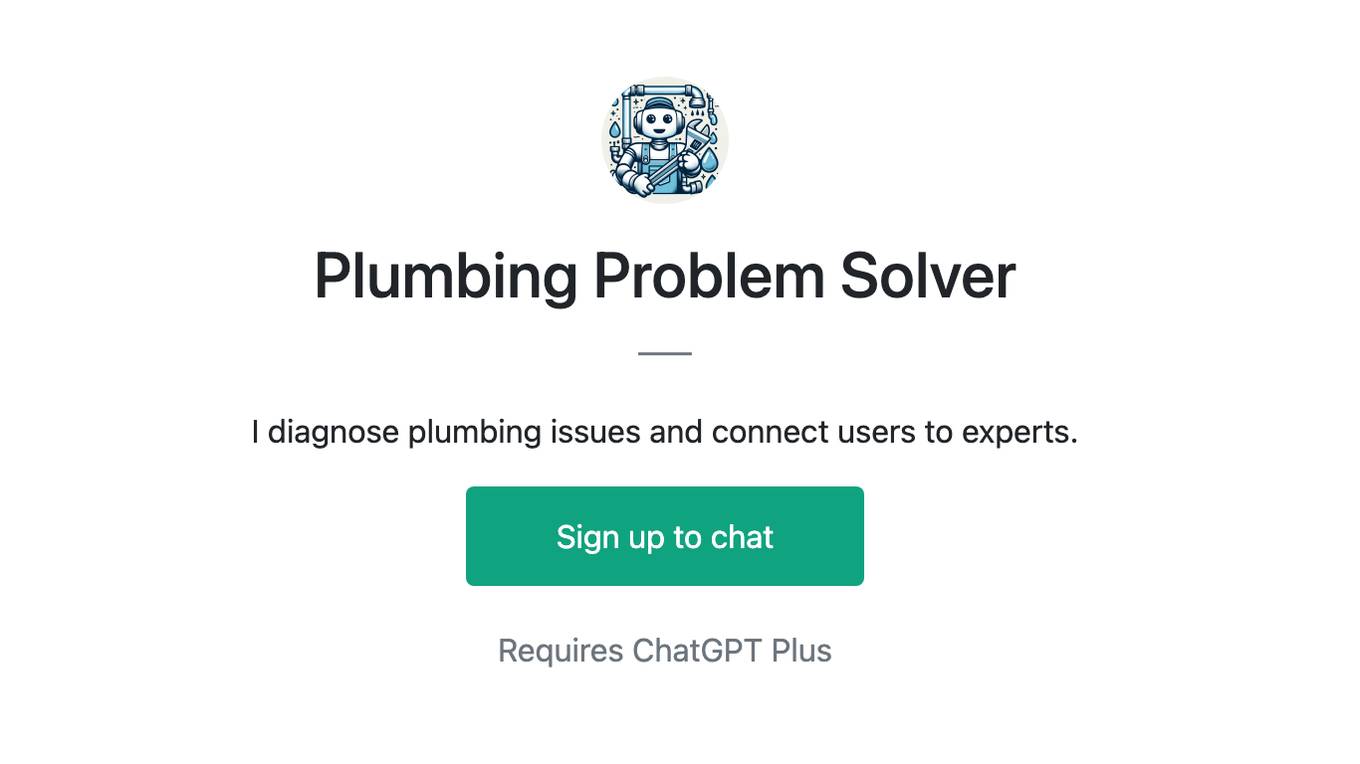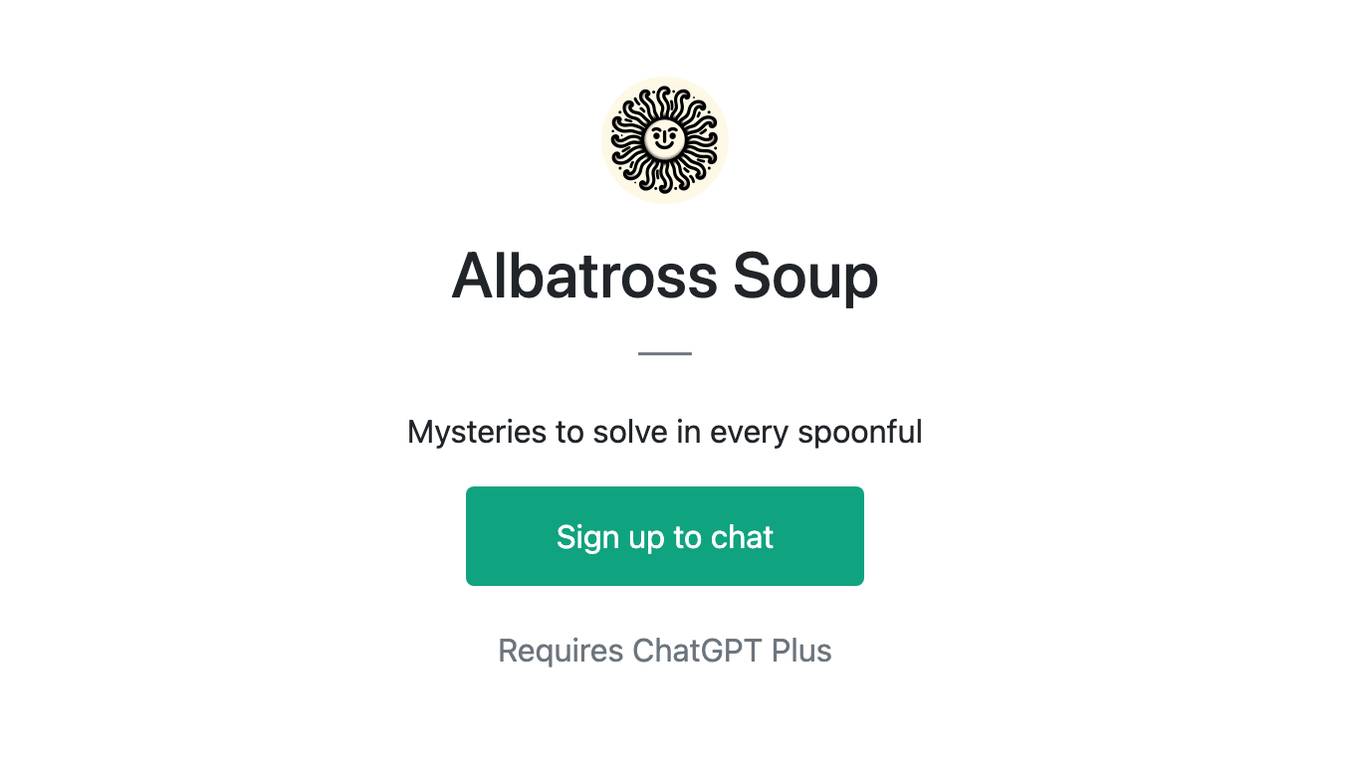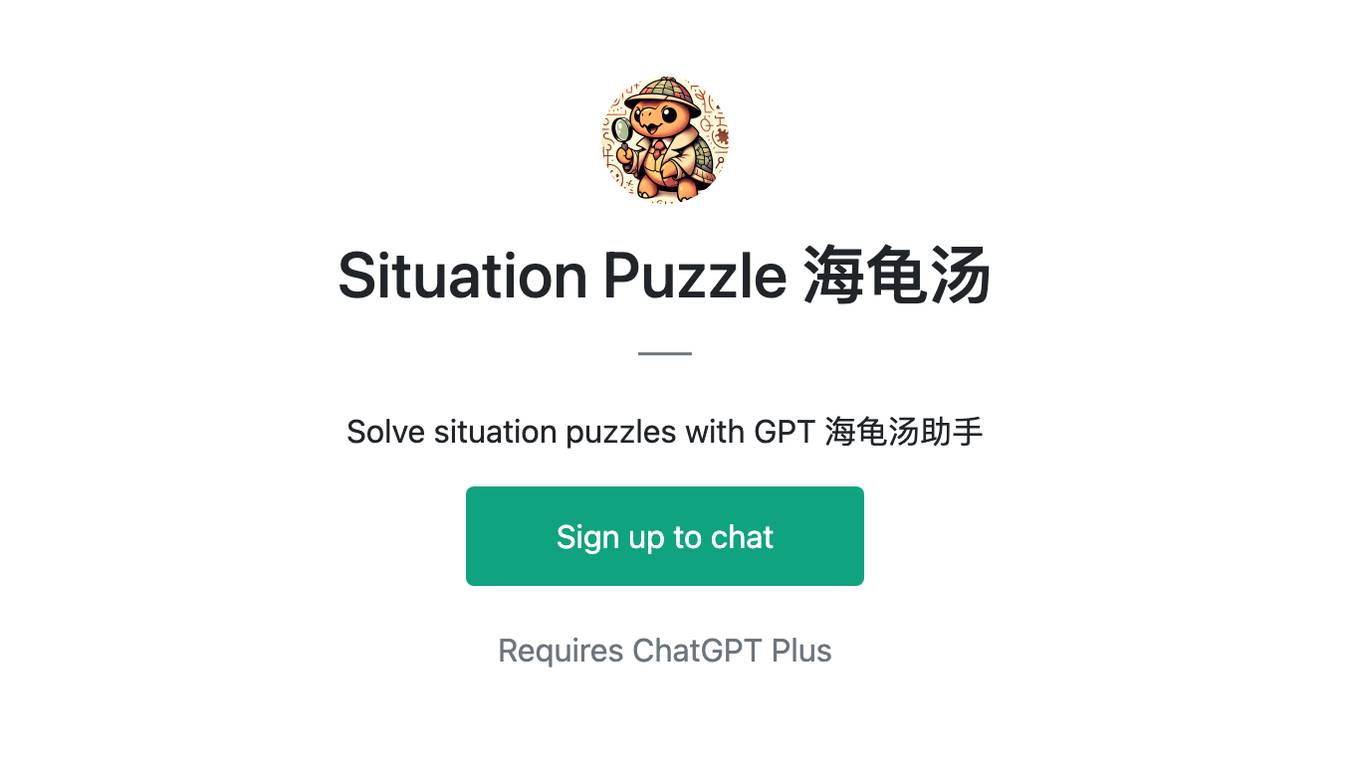Best AI tools for< Solve Real-world Problems With Ai >
20 - AI tool Sites

Google Research
Google Research is a team of scientists and engineers working on a wide range of topics in computer science, including artificial intelligence, machine learning, and quantum computing. Our mission is to advance the state of the art in these fields and to develop new technologies that can benefit society. We publish hundreds of research papers each year and collaborate with researchers from around the world. Our work has led to the development of many new products and services, including Google Search, Google Translate, and Google Maps.
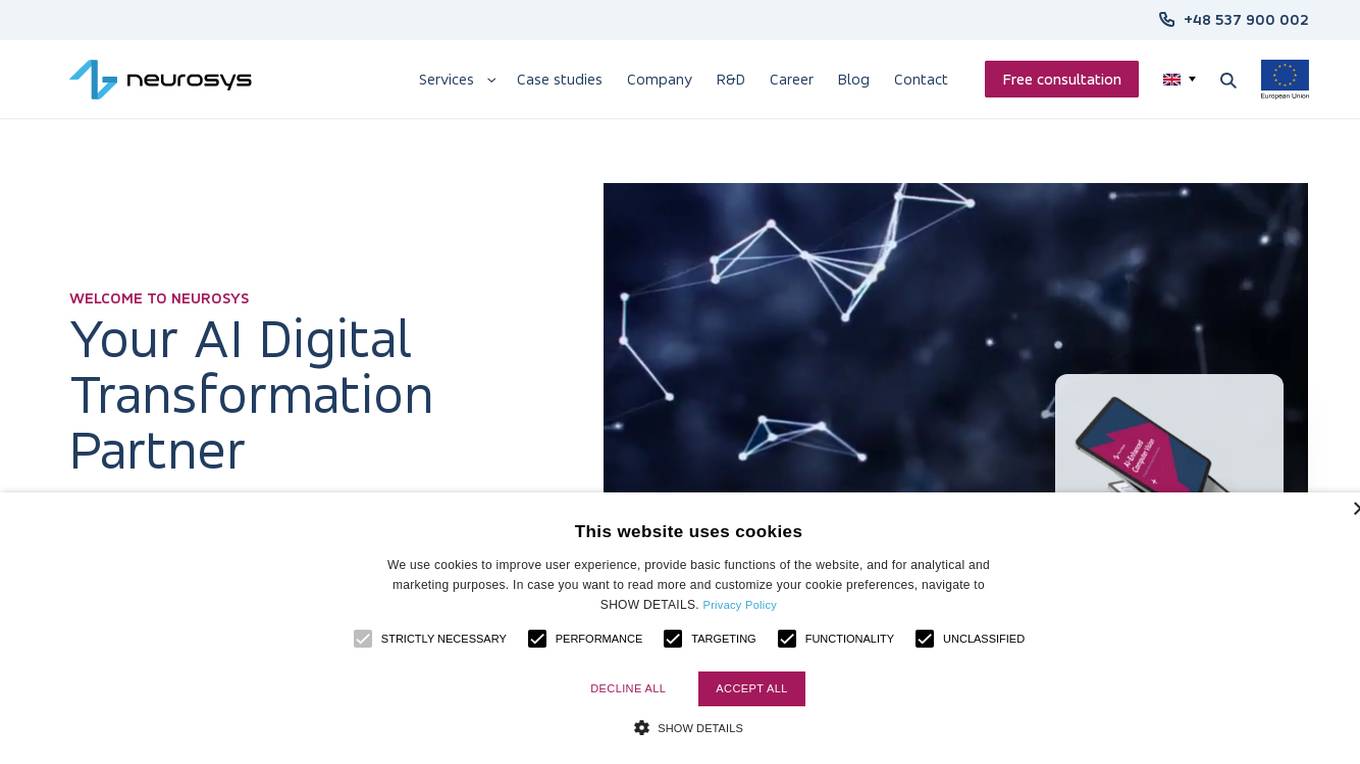
NeuroSYS
NeuroSYS is an AI and IT solutions provider that offers services in Artificial Intelligence, Software Development, Digital Innovation, Product Design, and other related areas. The company specializes in leveraging AI to boost efficiency, drive digital innovation, and design better products for various industries. NeuroSYS also provides services in software development, digital transformation, augmented reality, and data science, among others. With a focus on AI technologies like Machine Learning, Deep Learning, and Large Language Models automation, NeuroSYS aims to support businesses in achieving growth and automation of processes.
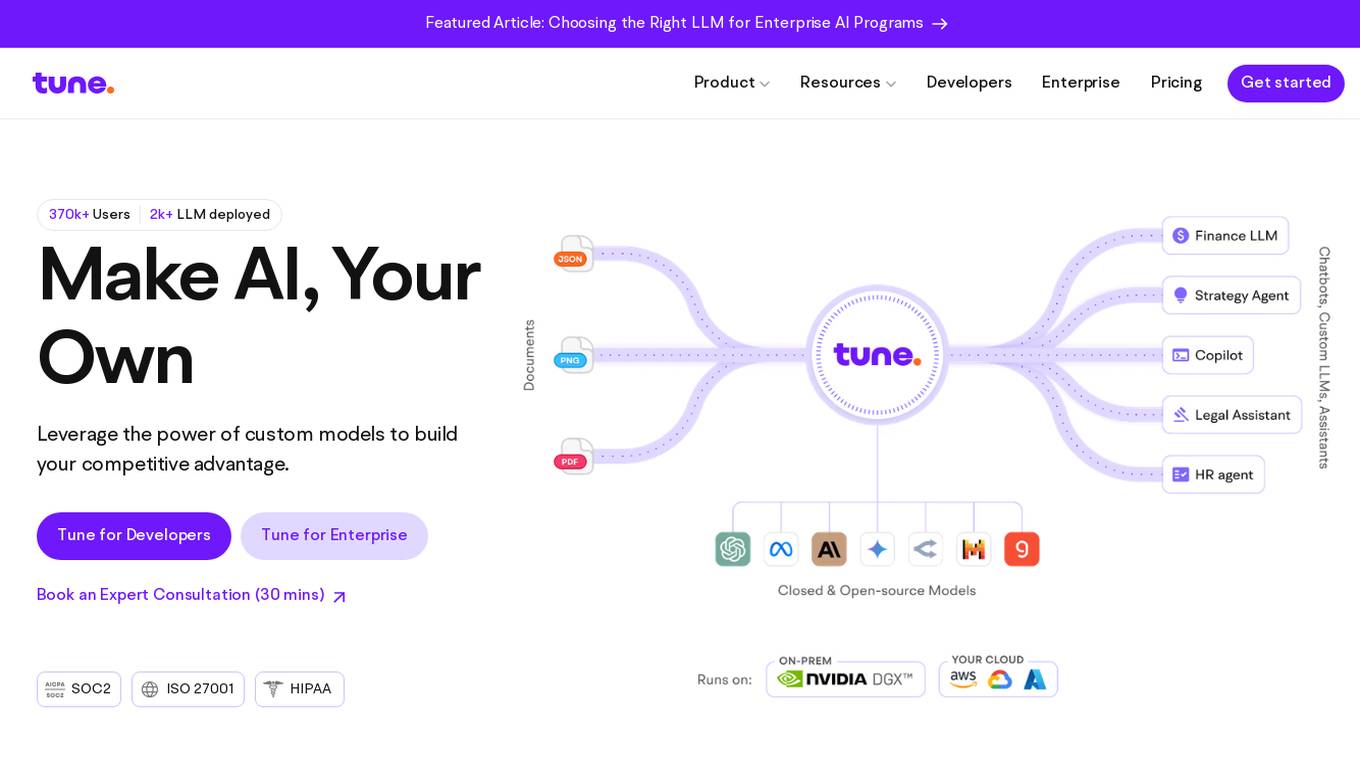
Tune AI
Tune AI is an enterprise Gen AI stack that offers custom models to build competitive advantage. It provides a range of features such as accelerating coding, content creation, indexing patent documents, data audit, automatic speech recognition, and more. The application leverages generative AI to help users solve real-world problems and create custom models on top of industry-leading open source models. With enterprise-grade security and flexible infrastructure, Tune AI caters to developers and enterprises looking to harness the power of AI.
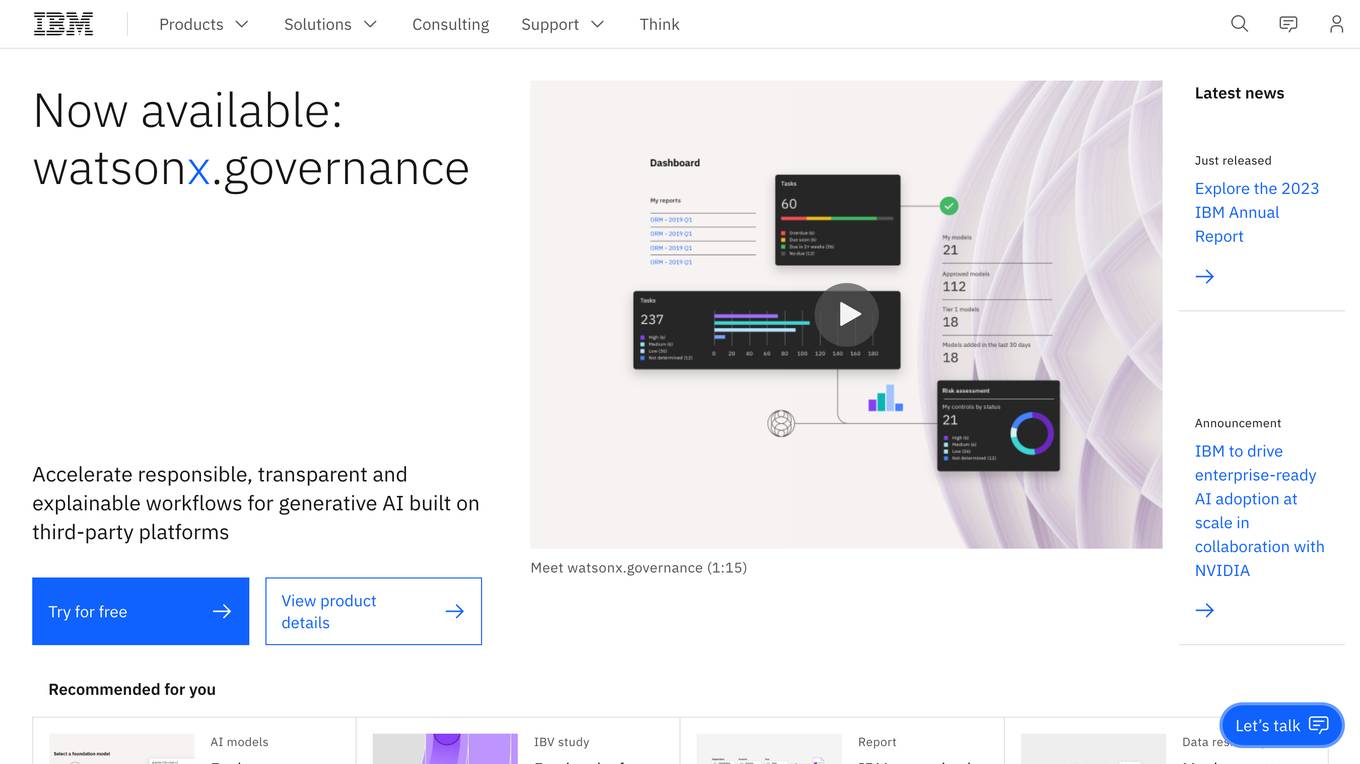
IBM
IBM is a leading technology company that offers a wide range of AI and machine learning solutions to help businesses innovate and grow. From AI models to cloud services, IBM provides cutting-edge technology to address various business challenges. The company also focuses on AI ethics and offers training programs to enhance skills in cybersecurity and data analytics. With a strong emphasis on research and development, IBM continues to push the boundaries of technology to solve real-world problems and drive digital transformation across industries.

Garden of AI
Garden of AI is a comprehensive AI-powered platform that provides a wide range of tools and resources to help users explore, learn, and apply AI in their daily lives and work. With a vast collection of AI models, tutorials, datasets, and community forums, Garden of AI empowers users to stay up-to-date with the latest AI advancements and leverage its capabilities to solve real-world problems.
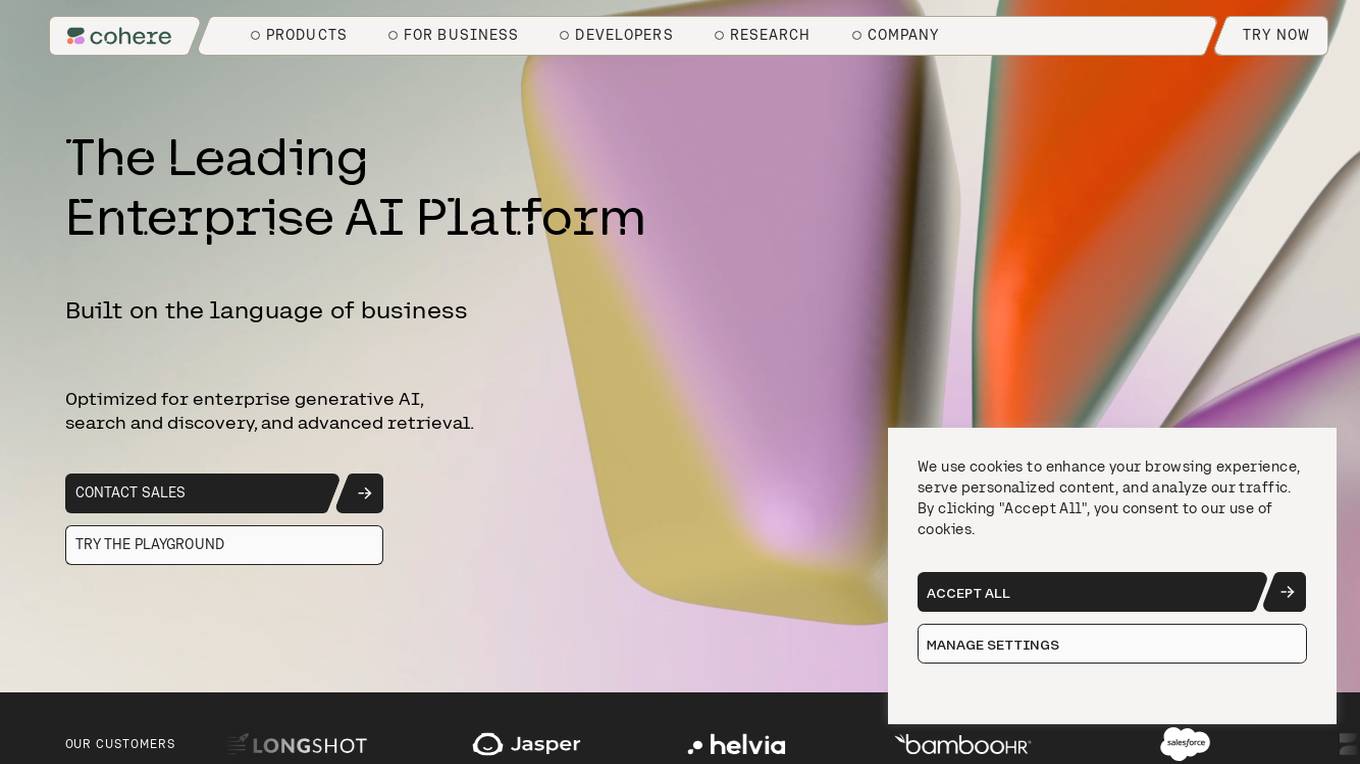
Cohere
Cohere is the leading AI platform for enterprise, offering generative AI, search and discovery, and advanced retrieval solutions. Their models are designed to enhance the global workforce, empowering businesses to thrive in the AI era. With features like Cohere Command, Cohere Embed, and Cohere Rerank, the platform enables the development of scalable and efficient AI-powered applications. Cohere focuses on optimizing enterprise data through language-based models, supporting over 100 languages for enhanced accuracy and efficiency.
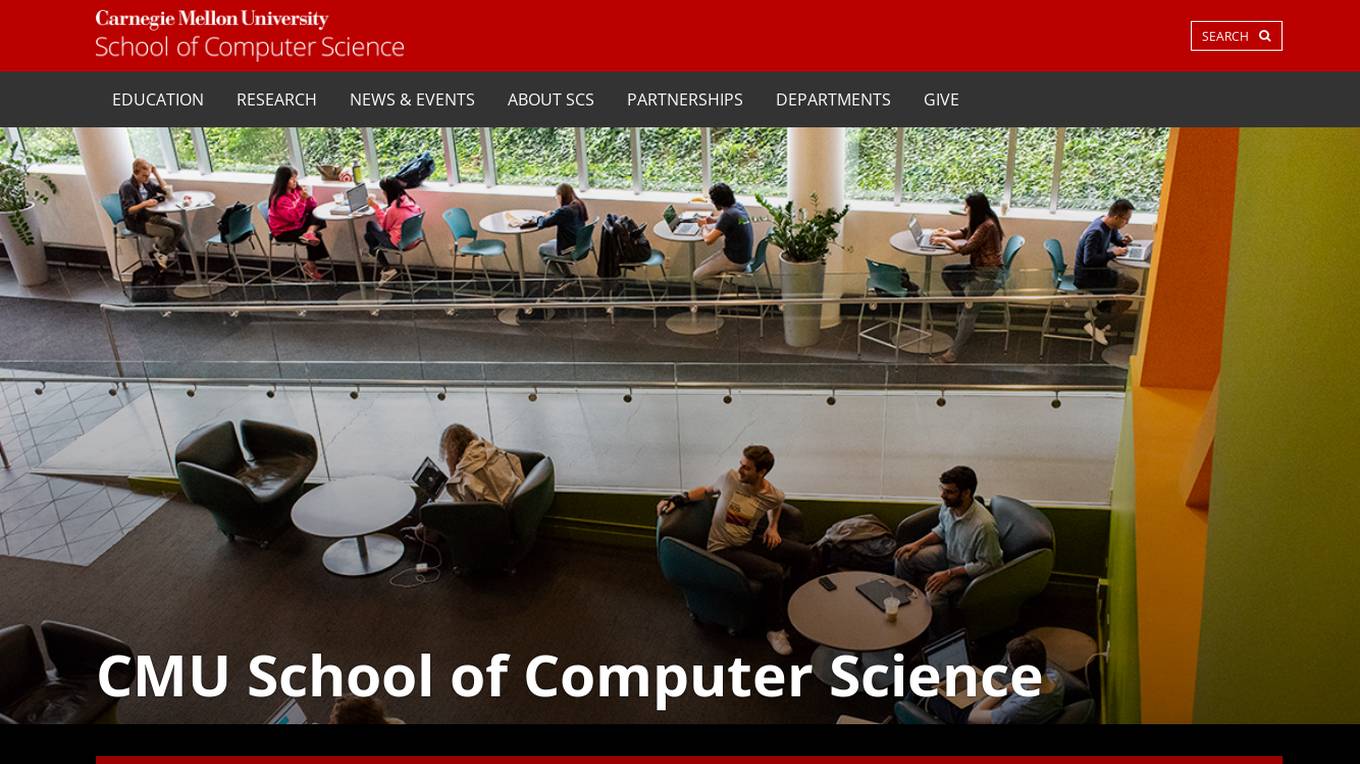
Carnegie Mellon University School of Computer Science
Carnegie Mellon University's School of Computer Science (SCS) is a world-renowned institution dedicated to advancing the field of computer science and training the next generation of innovators. With a rich history of groundbreaking research and a commitment to excellence in education, SCS offers a comprehensive range of programs, from undergraduate to doctoral levels, covering various specializations within computer science. The school's faculty are leading experts in their respective fields, actively engaged in cutting-edge research and collaborating with industry partners to solve real-world problems. SCS graduates are highly sought after by top companies and organizations worldwide, recognized for their exceptional skills and ability to drive innovation.
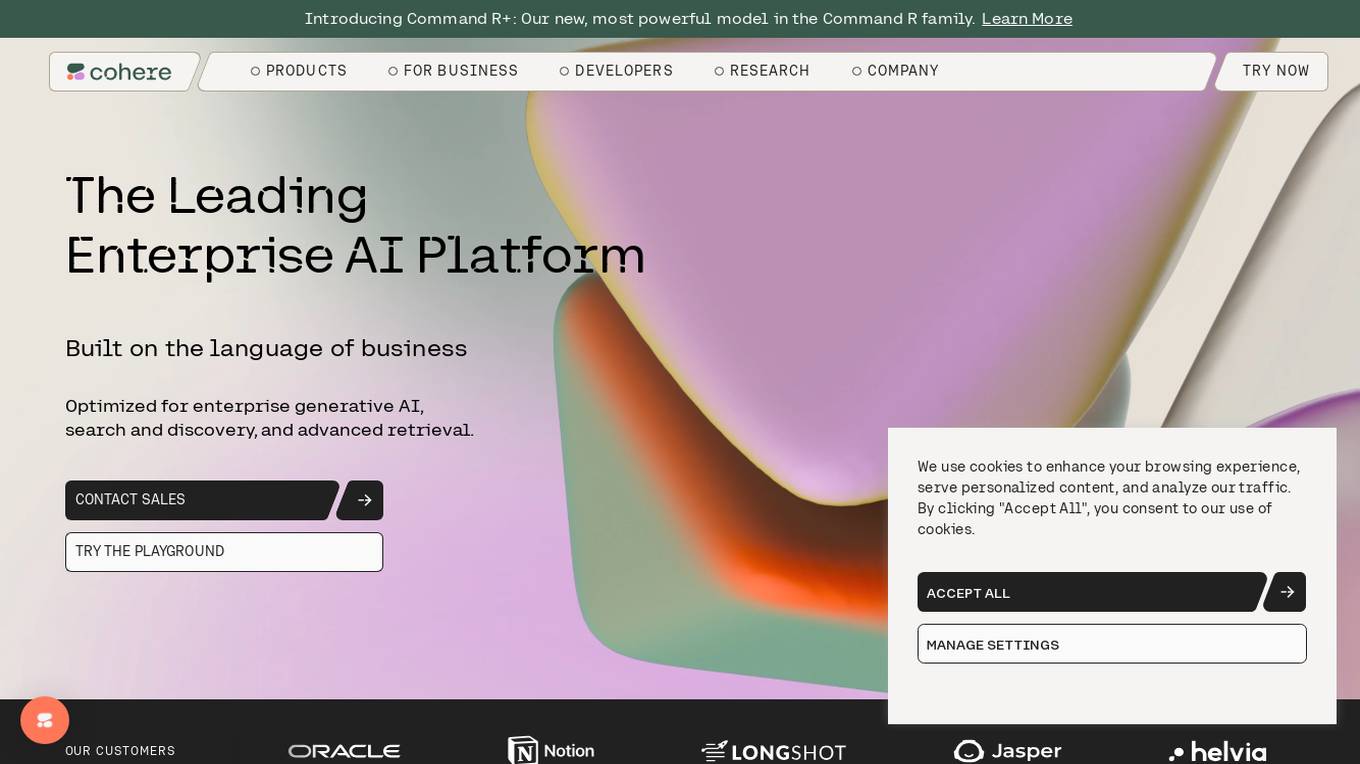
Cohere
Cohere is the leading AI platform for enterprise, offering products optimized for generative AI, search and discovery, and advanced retrieval. Their models are designed to enhance the global workforce, enabling businesses to thrive in the AI era. Cohere provides Command R+, Cohere Command, Cohere Embed, and Cohere Rerank for building efficient AI-powered applications. The platform also offers deployment options for enterprise-grade AI on any cloud or on-premises, along with developer resources like Playground, LLM University, and Developer Docs.

AI Otaku Labo
AI Otaku Labo is a professional website that provides in-depth reviews and tutorials on various AI tools and applications. The website covers a wide range of AI-related topics, including image generation, video generation, audio generation, text generation, and more. The articles are written by a team of experts with extensive experience in the field of AI. AI Otaku Labo is a valuable resource for anyone who wants to learn more about AI and how to use it to solve real-world problems.
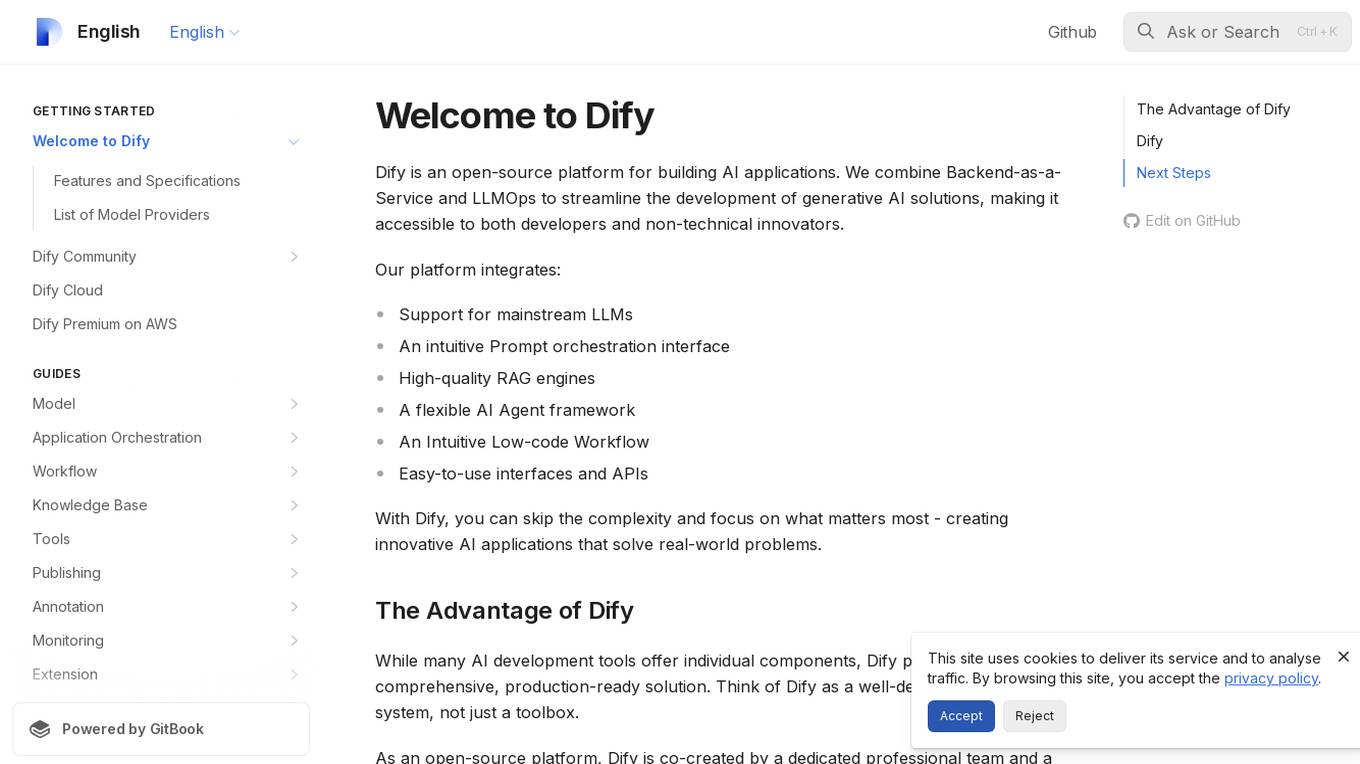
Dify
Dify is an open-source platform for building AI applications that combines Backend-as-a-Service and LLMOps to streamline the development of generative AI solutions. It integrates support for mainstream LLMs, an intuitive Prompt orchestration interface, high-quality RAG engines, a flexible AI Agent framework, and easy-to-use interfaces and APIs. Dify allows users to skip complexity and focus on creating innovative AI applications that solve real-world problems. It offers a comprehensive, production-ready solution with a user-friendly interface.
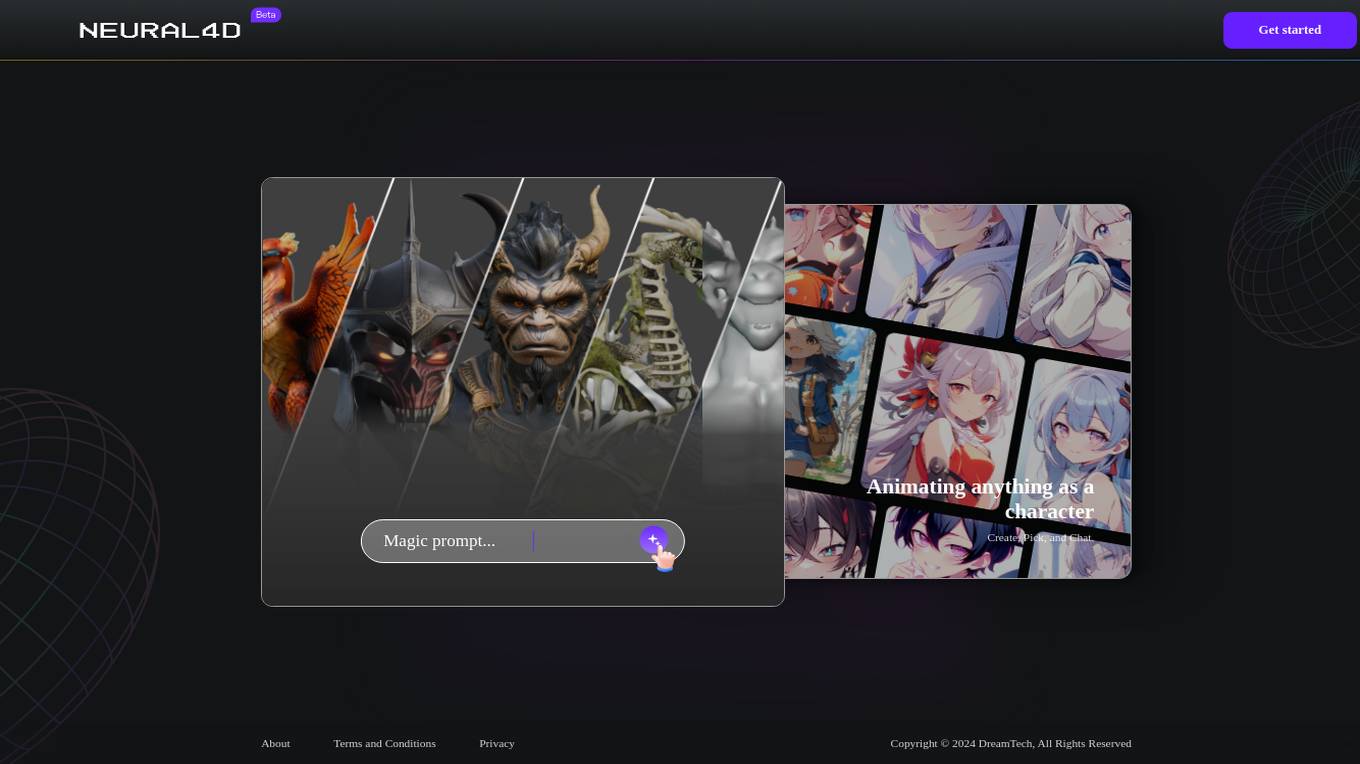
Neural4D
Neural4D is an AI tool designed to provide advanced neural network solutions. It offers a range of features for deep learning applications, including image recognition, natural language processing, and predictive analytics. With Neural4D, users can build and train complex neural networks to solve various real-world problems. The tool is user-friendly and suitable for both beginners and experienced AI practitioners.

BugFree.ai
BugFree.ai is an AI-powered platform designed to help users practice system design and behavior interviews, similar to Leetcode. The platform offers a range of features to assist users in preparing for technical interviews, including mock interviews, real-time feedback, and personalized study plans. With BugFree.ai, users can improve their problem-solving skills and gain confidence in tackling complex interview questions.
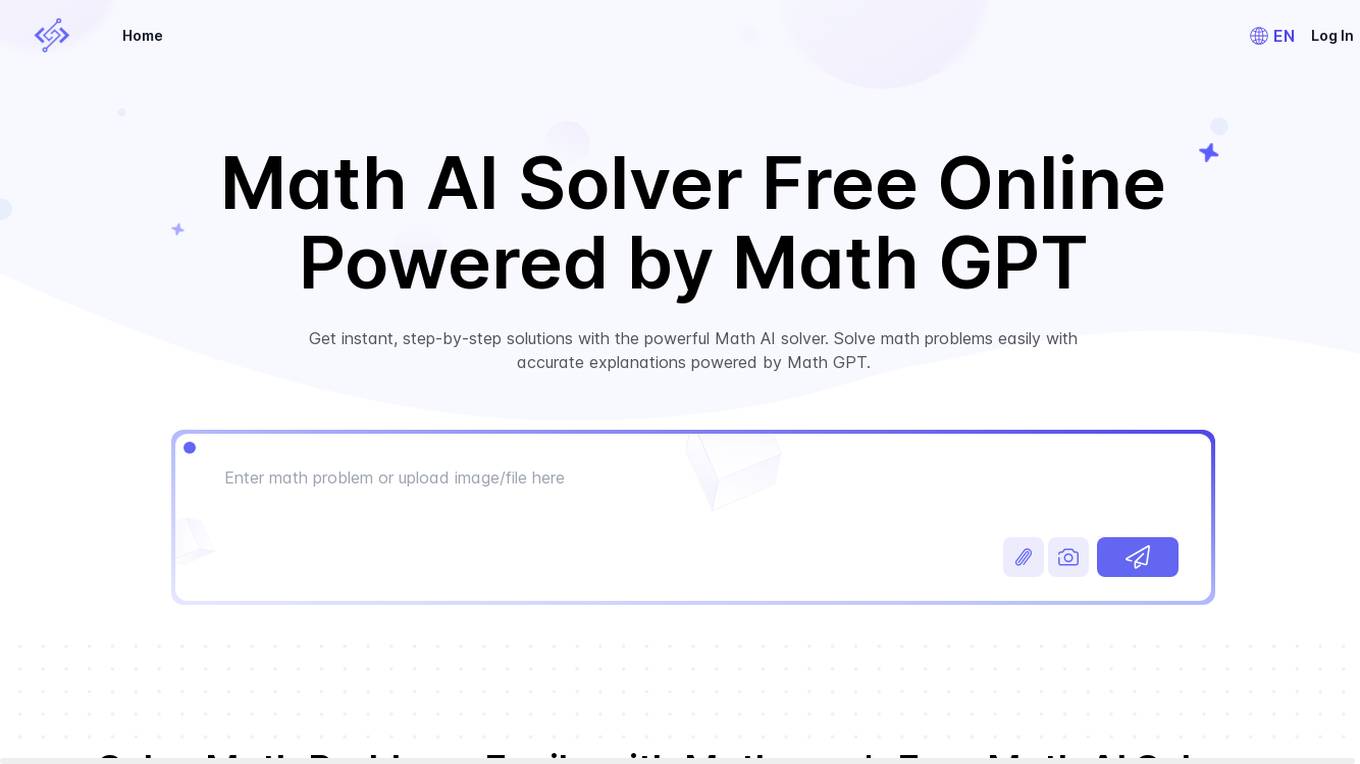
Math.now
Math.now is a free online math AI solver powered by Math GPT, offering instant, step-by-step solutions for a wide range of mathematical problems. Users can input math problems or upload photos for analysis, interact with the math AI bot for explanations, and receive real-time assistance. The application supports algebra, geometry, calculus, and word problems, providing detailed guidance and personalized learning experiences. Math.now's AI solver ensures accuracy, efficiency, and accessibility for students, educators, and self-learners.

TensorFlow
TensorFlow is an end-to-end platform for machine learning. It provides a wide range of tools and resources to help developers build, train, and deploy ML models. TensorFlow is used by researchers and developers all over the world to solve real-world problems in a variety of domains, including computer vision, natural language processing, and robotics.
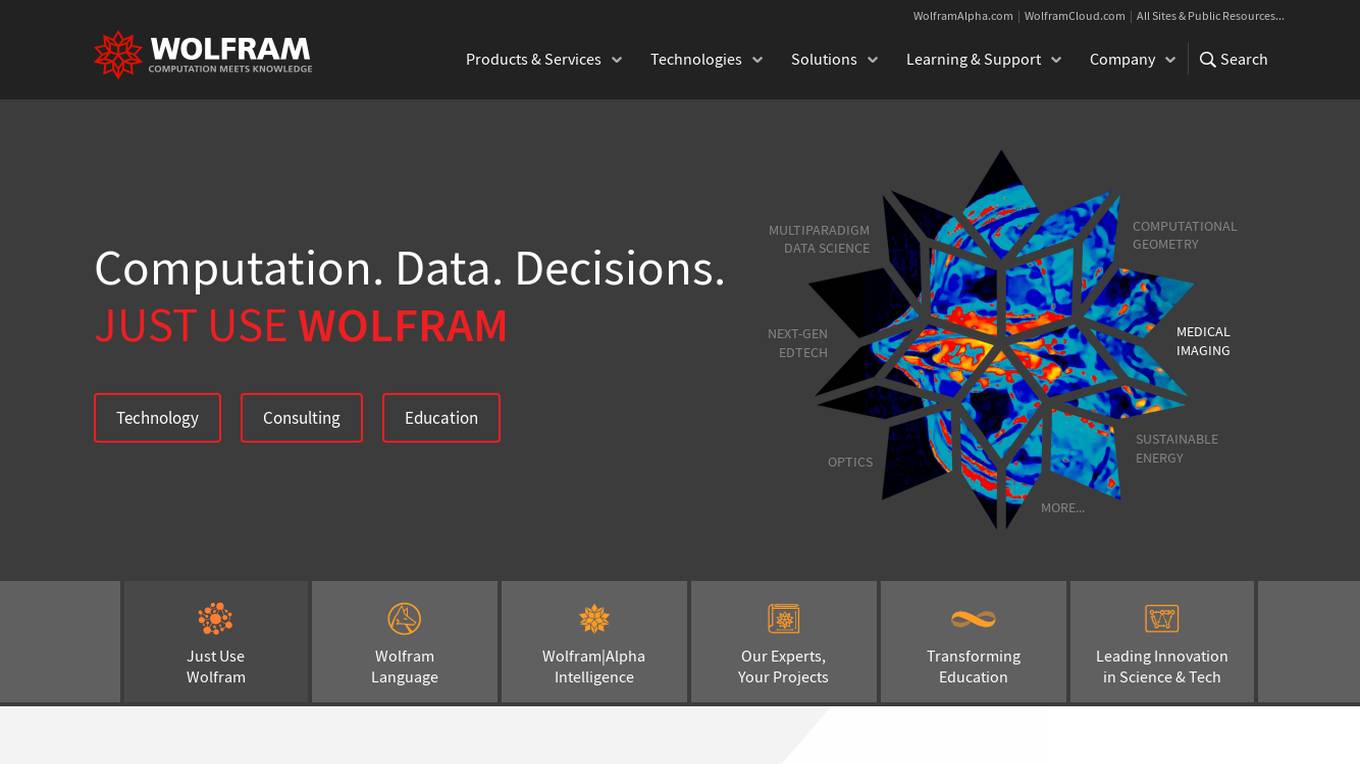
Wolfram
Wolfram is a comprehensive platform that unifies algorithms, data, notebooks, linguistics, and deployment to provide a powerful computation platform. It offers a range of products and services for various industries, including education, engineering, science, and technology. Wolfram is known for its revolutionary knowledge-based programming language, Wolfram Language, and its flagship product Wolfram|Alpha, a computational knowledge engine. The platform also includes Wolfram Cloud for cloud-based services, Wolfram Engine for software implementation, and Wolfram Data Framework for real-world data analysis.

G42
G42 is an AI company based in Abu Dhabi that focuses on pushing artificial intelligence to do more for everyone. They see AI as a force for good, a partner to humanity, and a tool to make lives healthier, journeys safer, and the future more connected. G42 works on various projects from decoding diseases to exploring deep space, with the aim of creating a better future for all. The company is known for its diverse and skilled workforce, global presence in over 30 countries, and collaboration with partners to solve real-world challenges using AI.
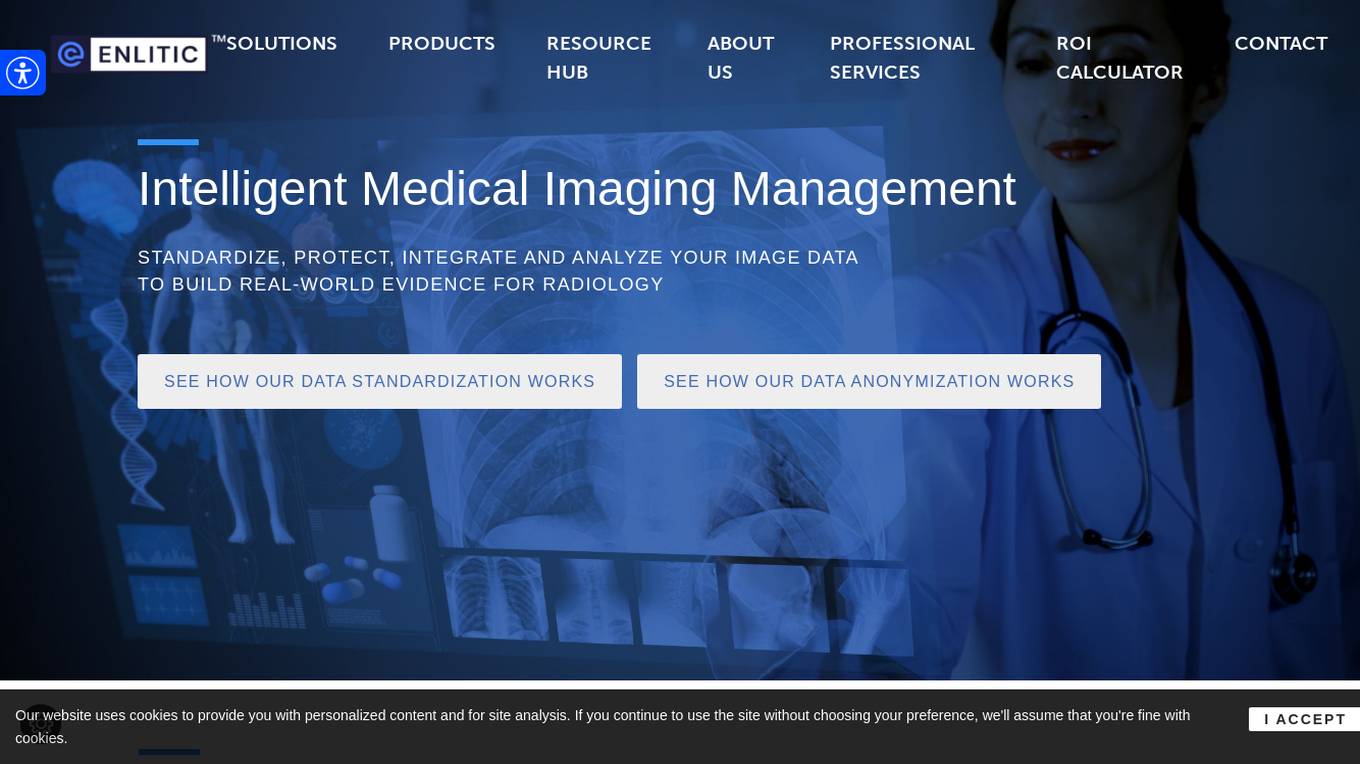
Enlitic
Enlitic provides healthcare data solutions that leverage artificial intelligence to improve data management, clinical workflows, and create a foundation for real-world evidence medical image databases. Their products, ENDEX and ENCOG, utilize computer vision and natural language processing to standardize, protect, and analyze medical imaging data, enabling healthcare providers to optimize workflows, increase efficiencies, and expand capacity.
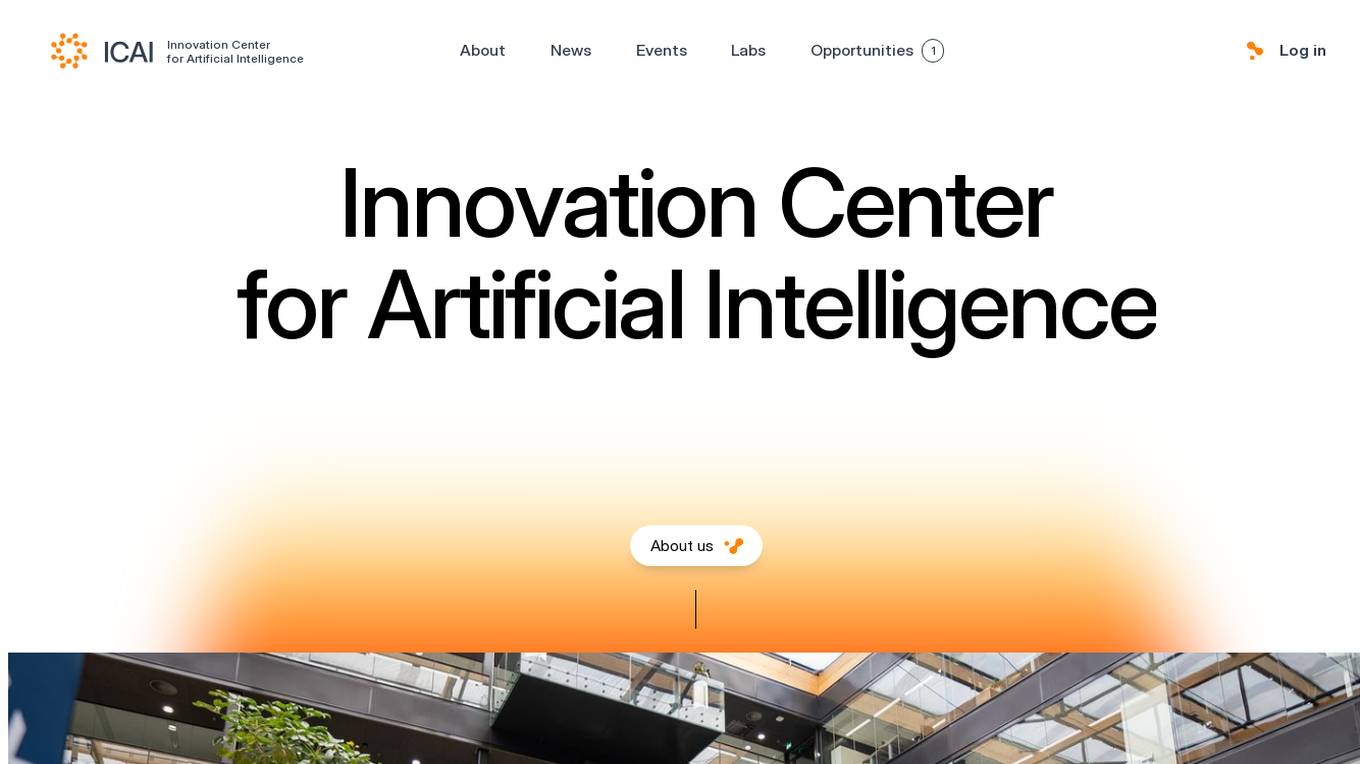
ICAI - Innovation Center for Artificial Intelligence
ICAI, the Innovation Center for Artificial Intelligence, is a collaborative platform in the Netherlands that brings together knowledge institutes, industry, and governmental partners to develop talent and technology in the field of artificial intelligence. The center offers opportunities for working on real-world challenges with access to real data, joint appointment programs, public events, and a focus on supporting the AI ecosystem and talent retention.
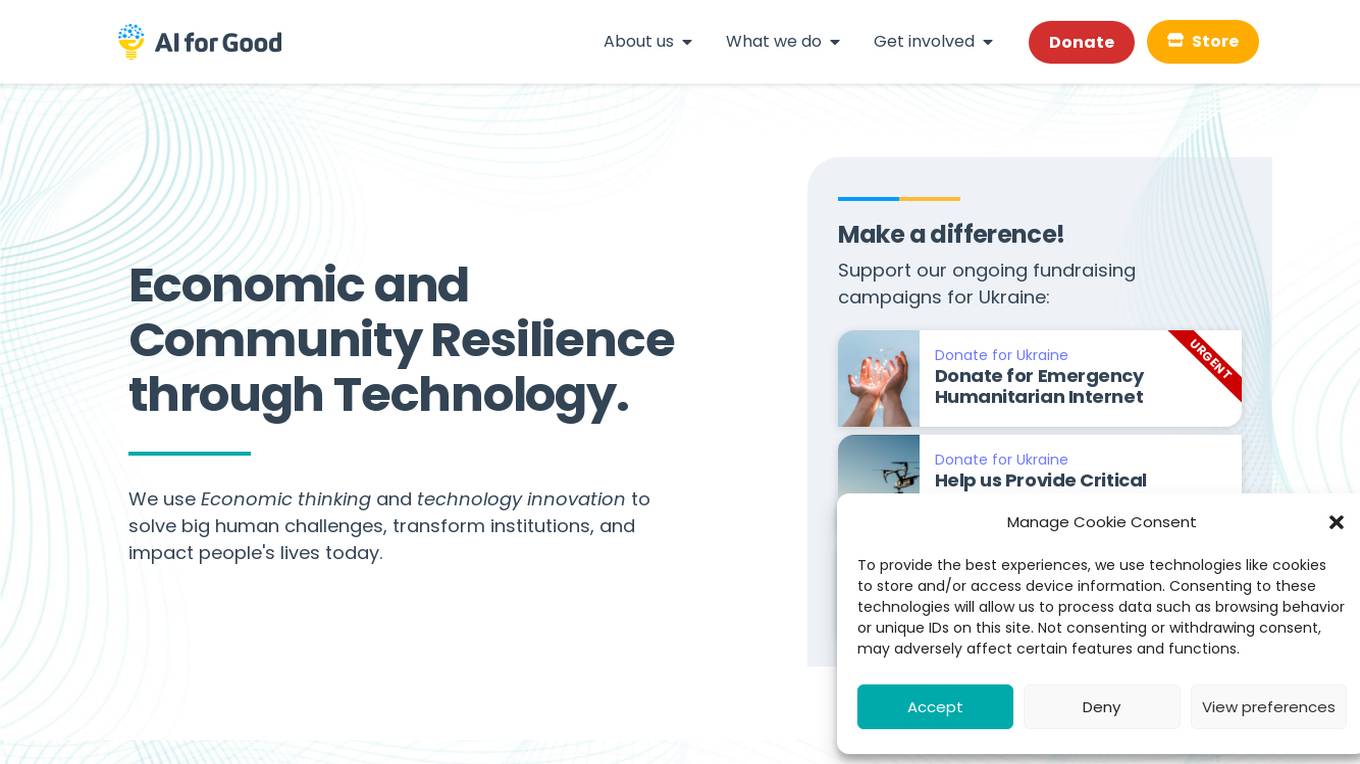
AI for Good Foundation
AI for Good Foundation is a platform dedicated to leveraging economic thinking and technology innovation to address significant human challenges, transform institutions, and positively impact people's lives. The foundation focuses on creating real economic and tech solutions, educating various stakeholders, and crafting technology-driven policy solutions at all levels of government. Through projects like Intelligent Societies, Humanitarian Aid 2.0, and Eureka - an intelligent assistant for refugees, AI for Good Foundation aims to make a difference by supporting ongoing fundraising campaigns and providing critical aid and support to communities in need.
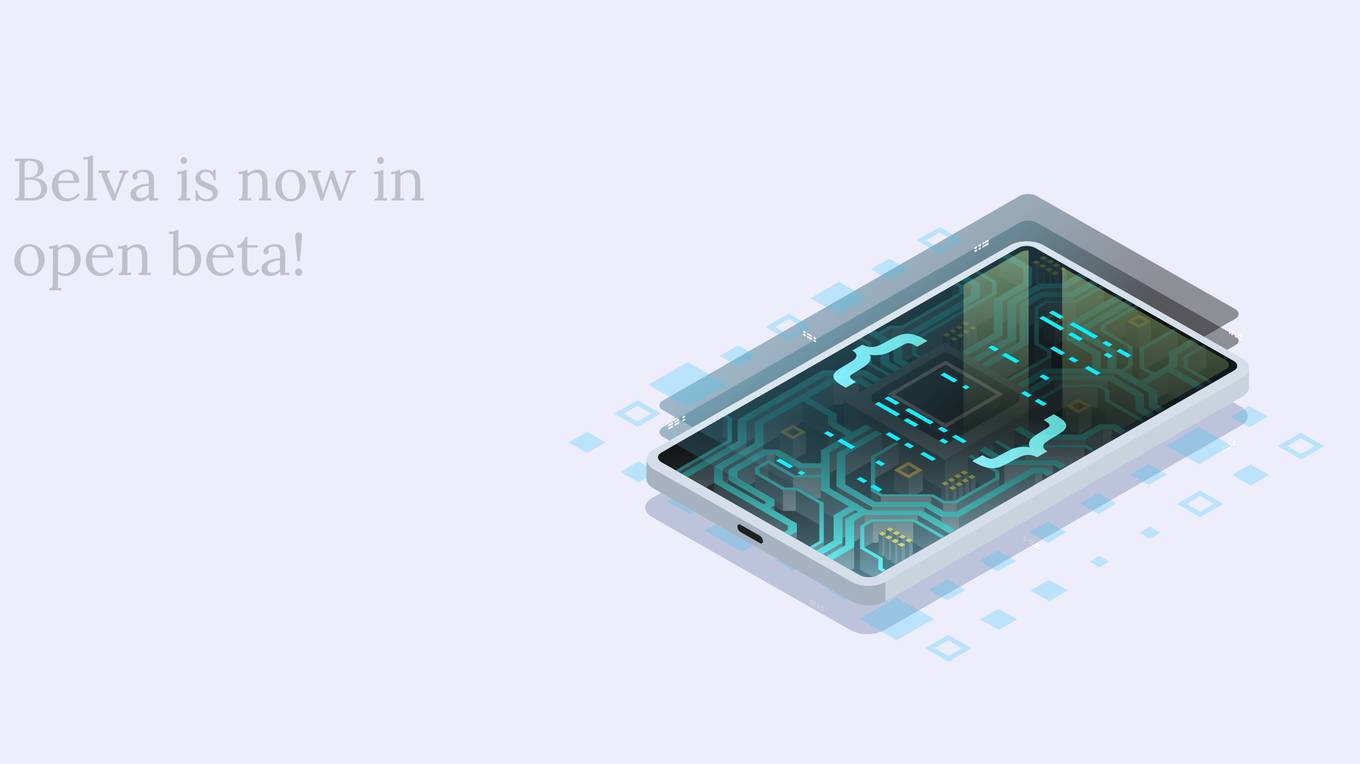
Belva
Belva is an AI-powered phone-calling assistant that can make calls on your behalf. With Belva, you can simply state your objective and the AI will make the call for you, providing you with a live transcription of the conversation. Belva's envoys can handle a variety of tasks, from making appointments and reservations to solving customer issues. You can monitor your active calls in real-time or review saved transcripts to collect information from the call. With Belva, you can get off the phone and let the AI do the talking, saving you time and hassle.
0 - Open Source AI Tools
20 - OpenAI Gpts
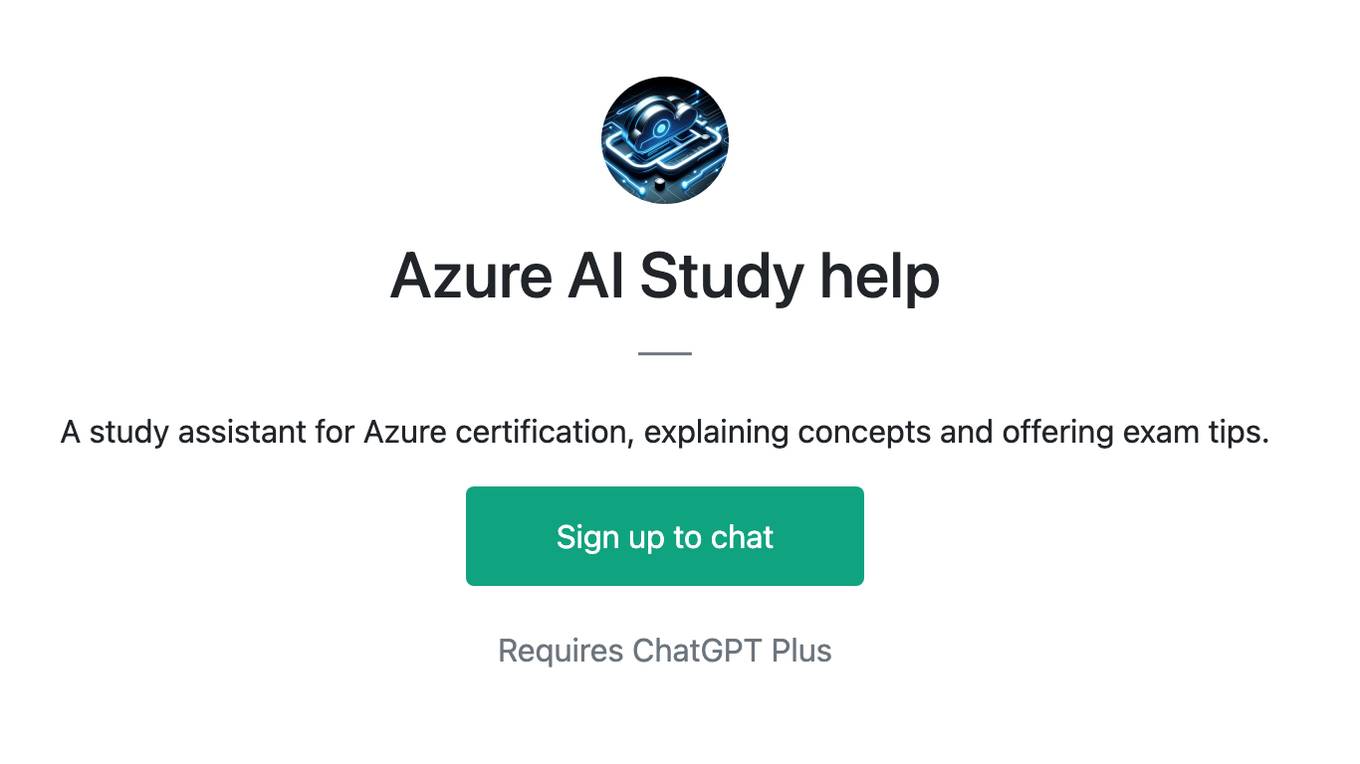
Azure AI Study help
A study assistant for Azure certification, explaining concepts and offering exam tips.
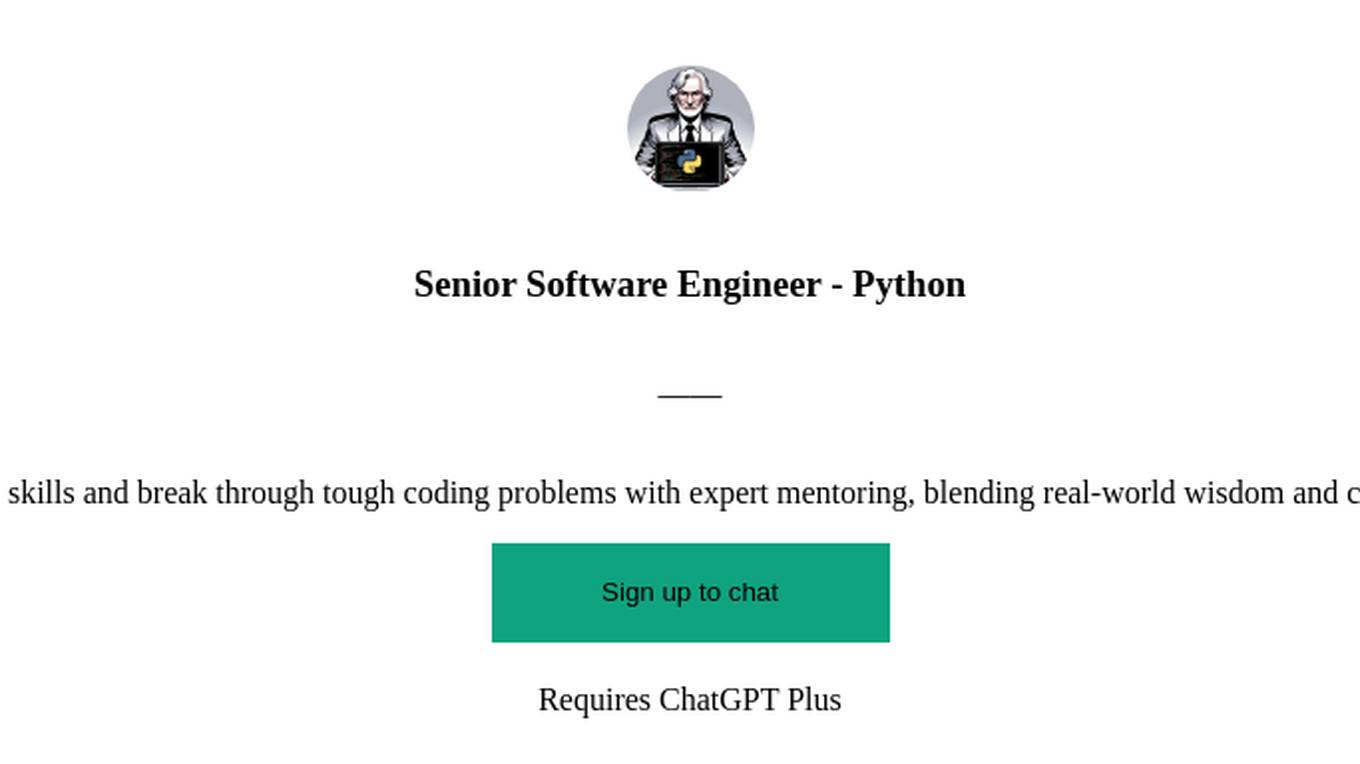
Senior Software Engineer - Python
Advance your Python skills and break through tough coding problems with expert mentoring, blending real-world wisdom and cutting-edge techniques.
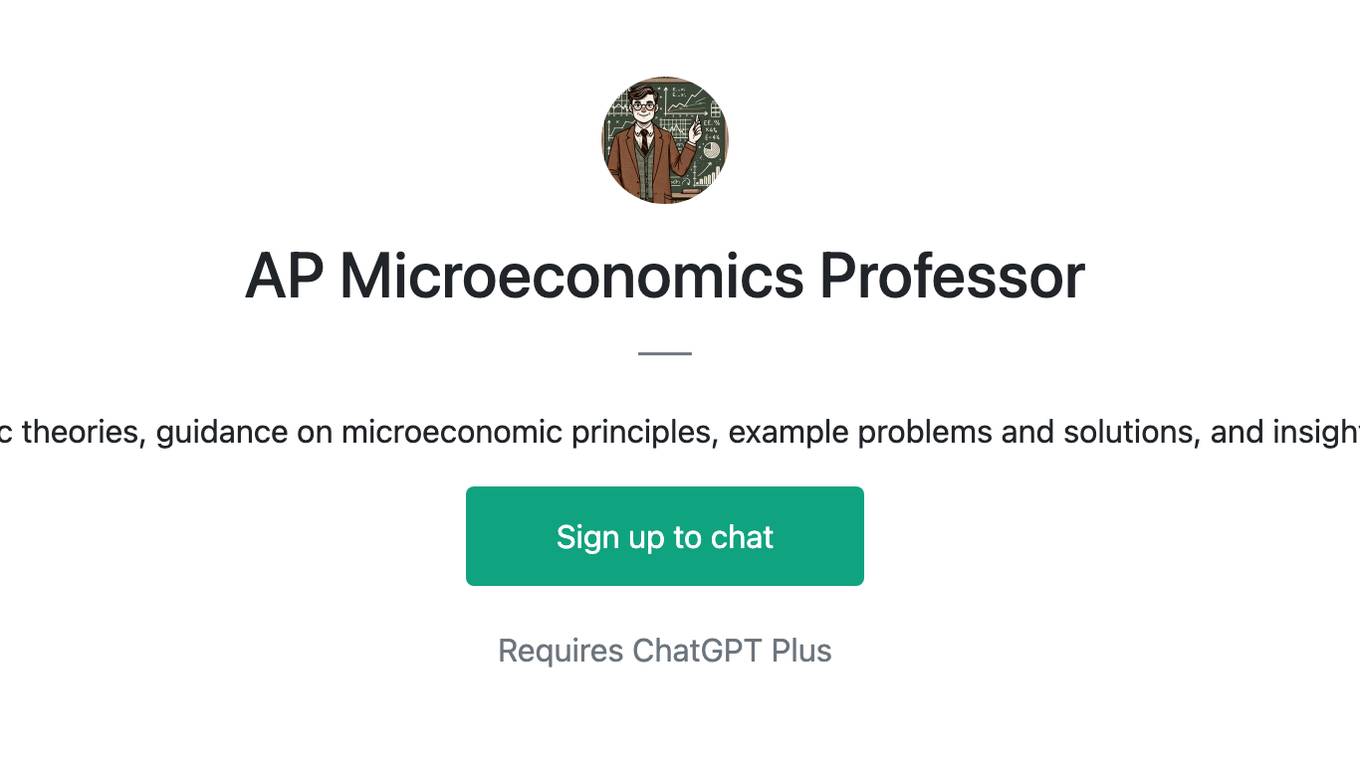
AP Microeconomics Professor
Offers detailed explanations of economic theories, guidance on microeconomic principles, example problems and solutions, and insights into real-world economic scenarios.

Fermi Estimate Wizard
Formal guide offering formula choices for real-world Fermi estimates.
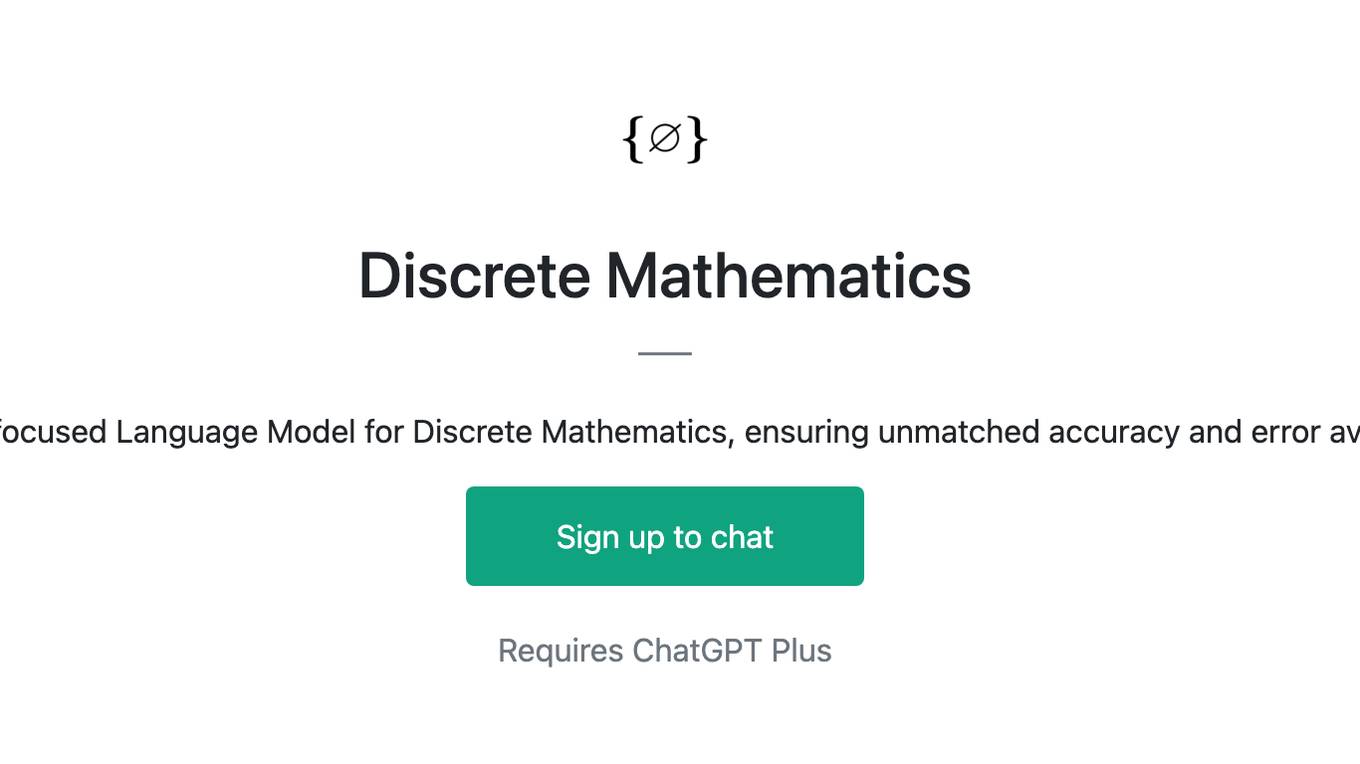
Discrete Mathematics
Precision-focused Language Model for Discrete Mathematics, ensuring unmatched accuracy and error avoidance.
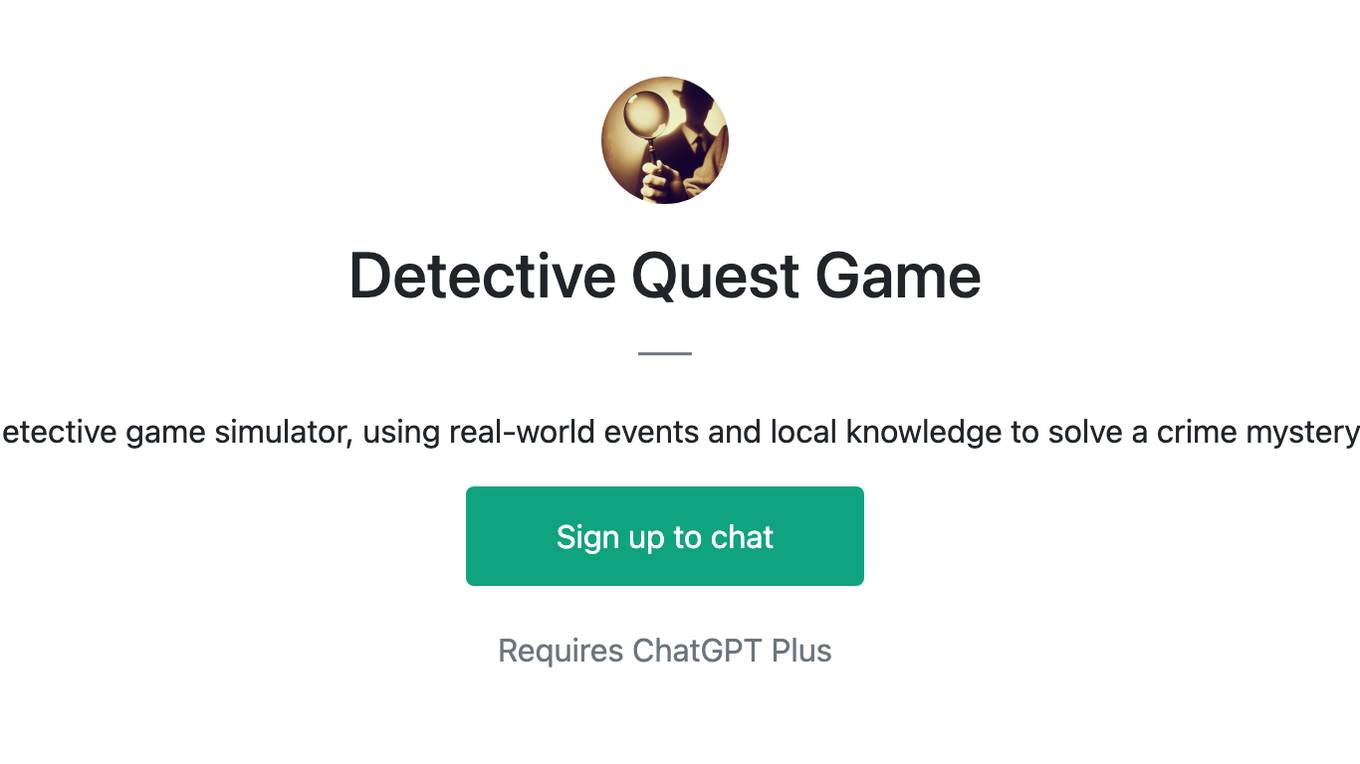
Detective Quest Game
A detective game simulator, using real-world events and local knowledge to solve a crime mystery..
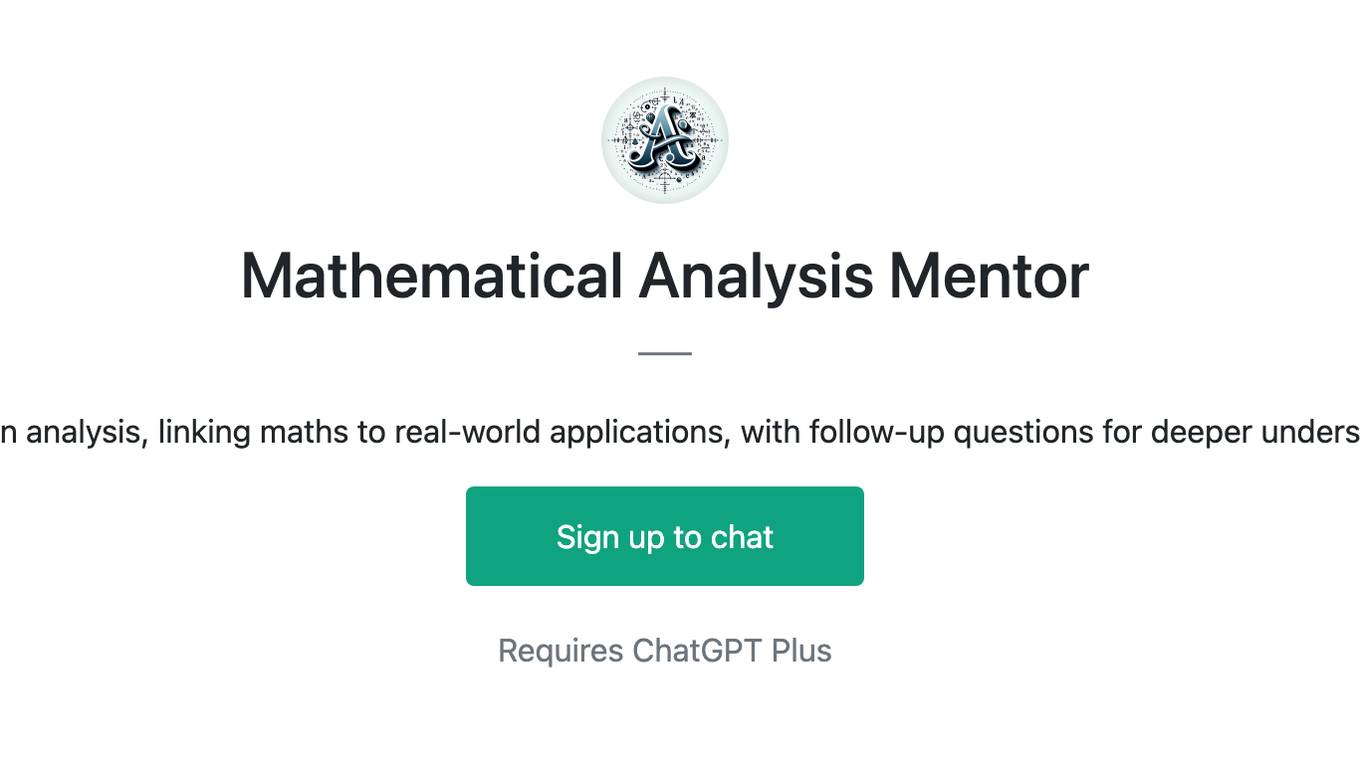
Mathematical Analysis Mentor
A mentor in analysis, linking maths to real-world applications, with follow-up questions for deeper understanding.
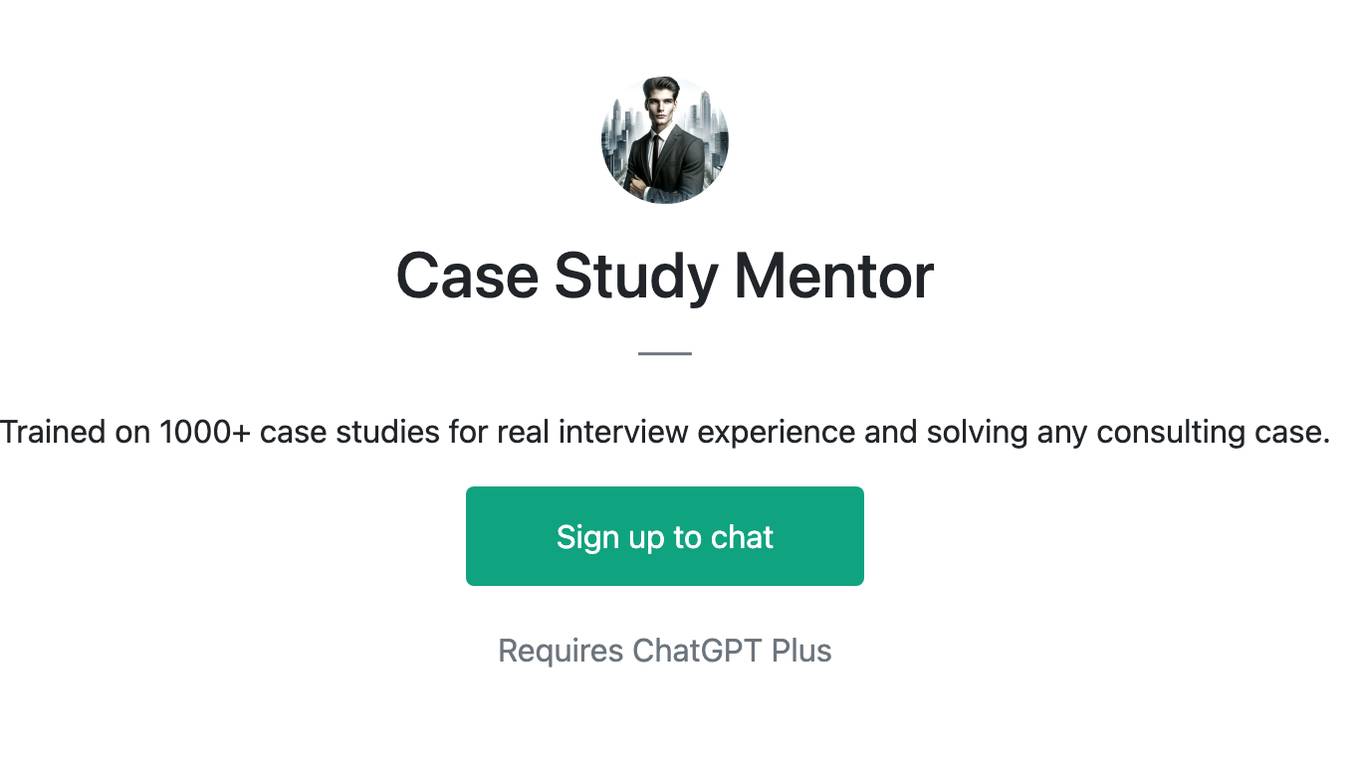
Case Study Mentor
Trained on 1000+ case studies for real interview experience and solving any consulting case.

Ryan Pollock GPT
🤖 AMAIA: ask Ryan's AI anything you'd ask the real Ryan 🧠 Deep Tech VP Marketing & Growth 🌥 Cloud Infrastructure, Databases, Machine Learning, APIs 🤖 Google Cloud, DigitalOcean, Oracle, Vultr, Android 🌁 More at linkedin.com/in/ryanpollock
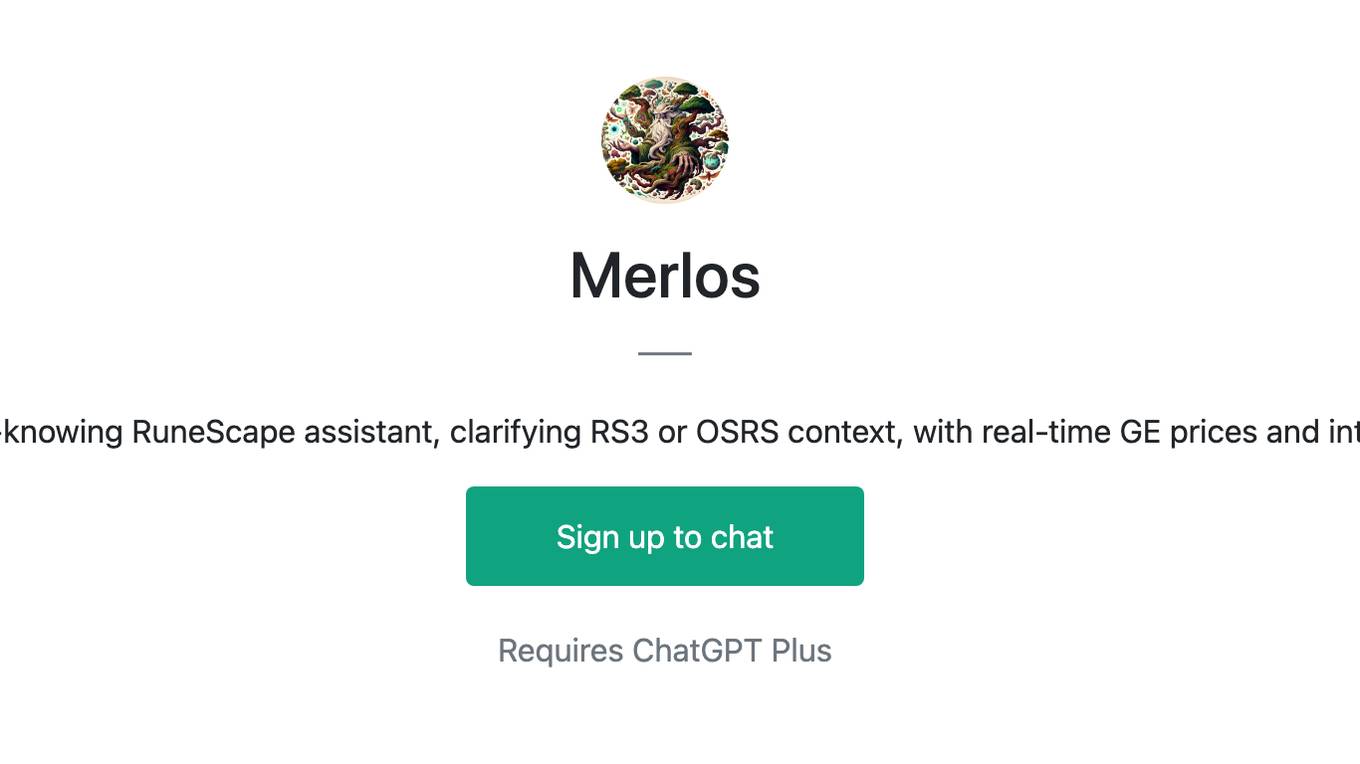
Merlos
Merlos is an all-knowing RuneScape assistant, clarifying RS3 or OSRS context, with real-time GE prices and internet search.
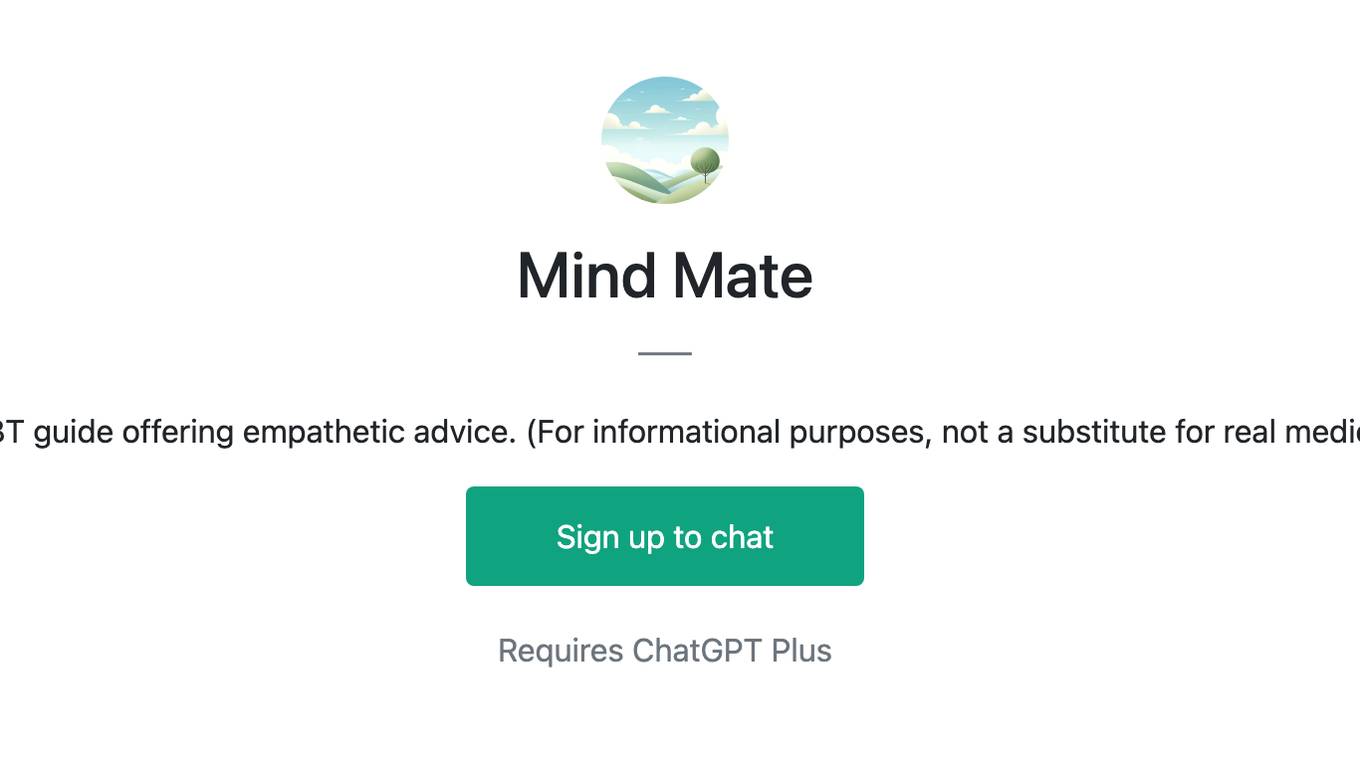
Mind Mate
A supportive CBT guide offering empathetic advice. (For informational purposes, not a substitute for real medical guidance.)
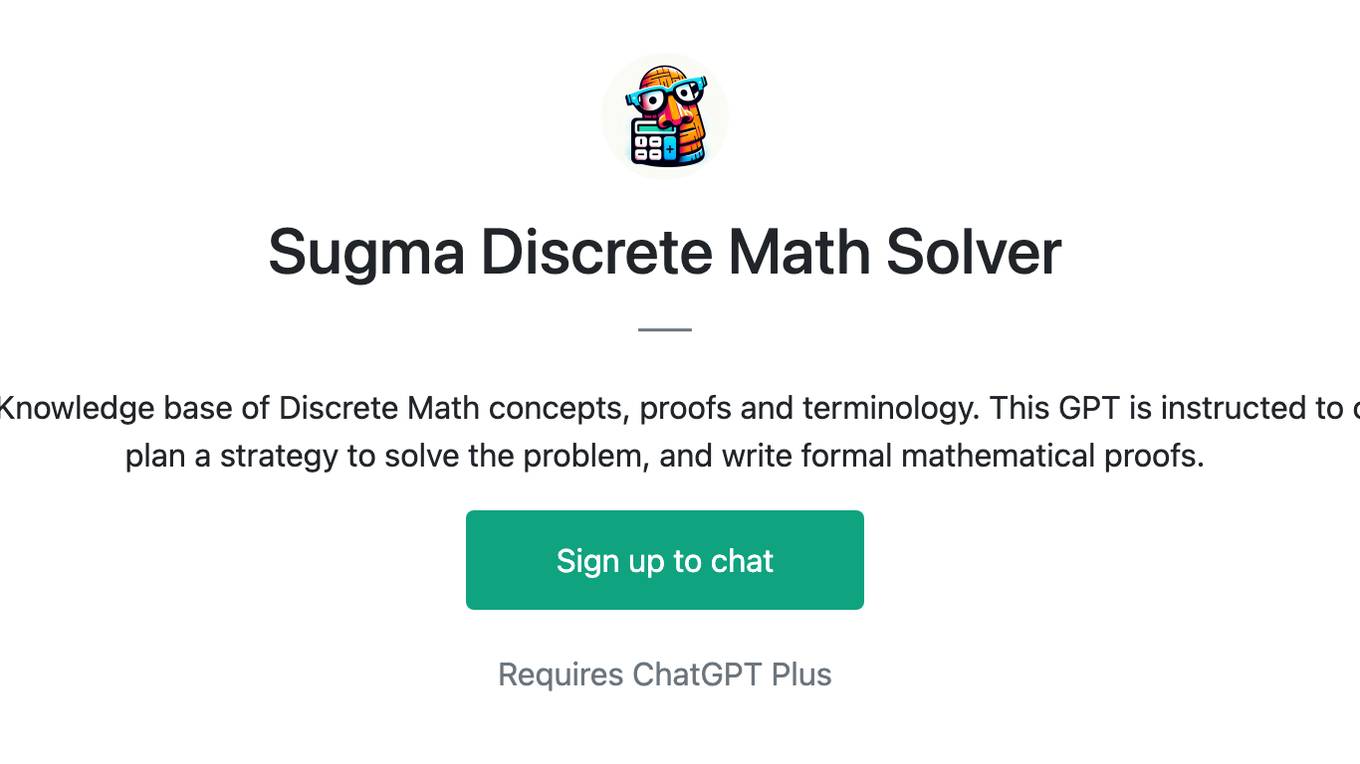
Sugma Discrete Math Solver
Powered by GPT-4 Turbo. 128,000 Tokens. Knowledge base of Discrete Math concepts, proofs and terminology. This GPT is instructed to carefully read and understand the prompt, plan a strategy to solve the problem, and write formal mathematical proofs.
